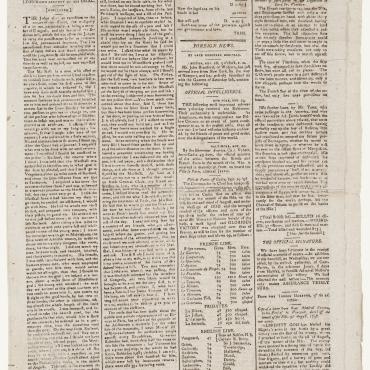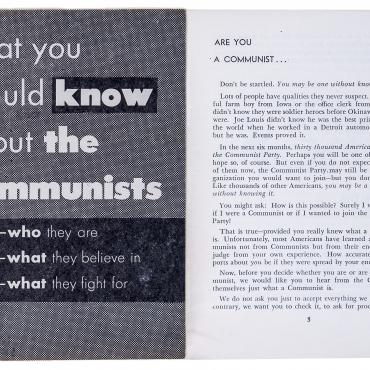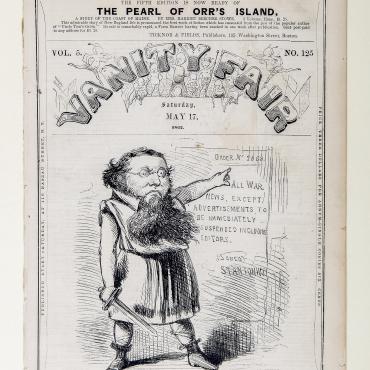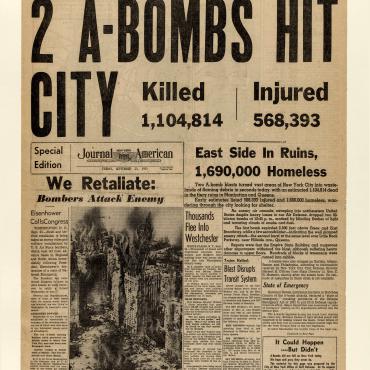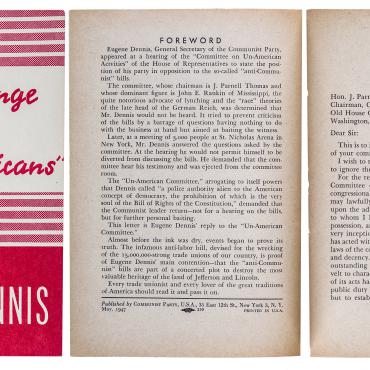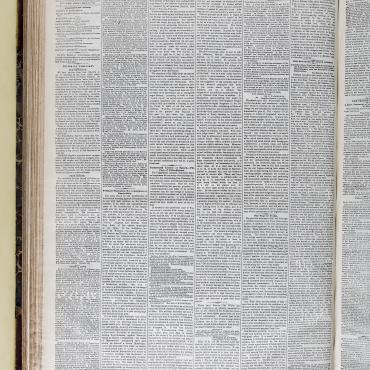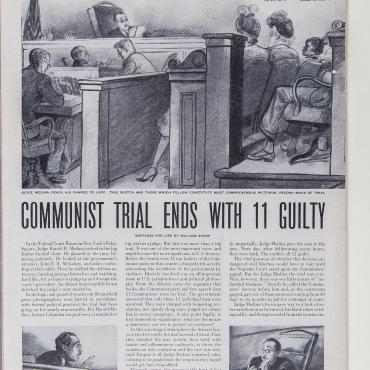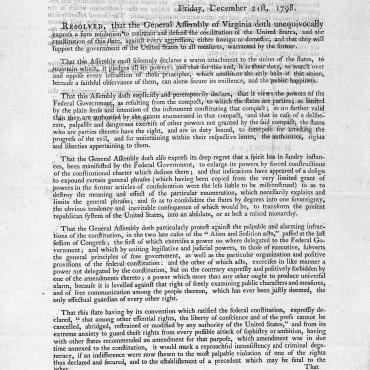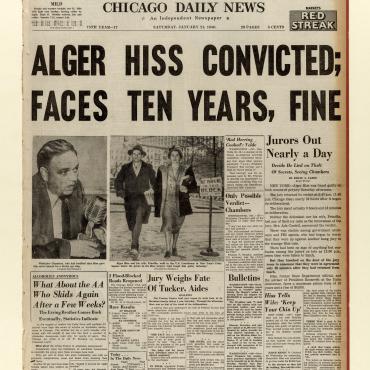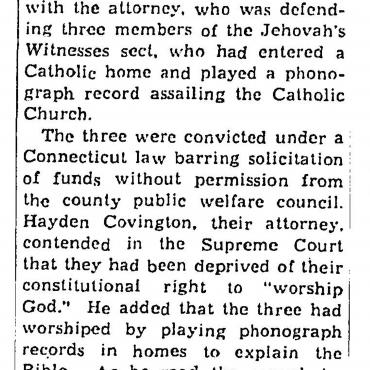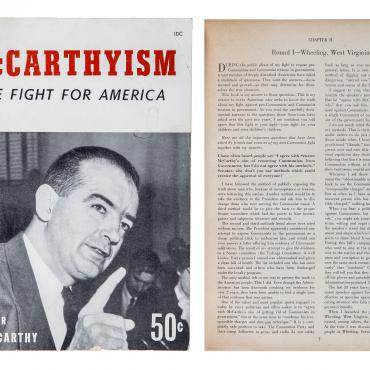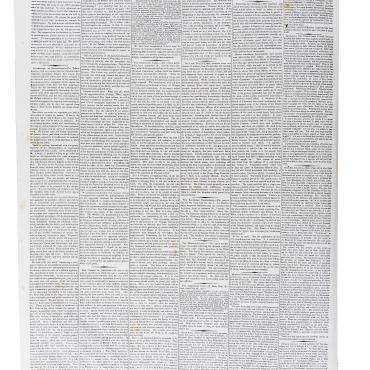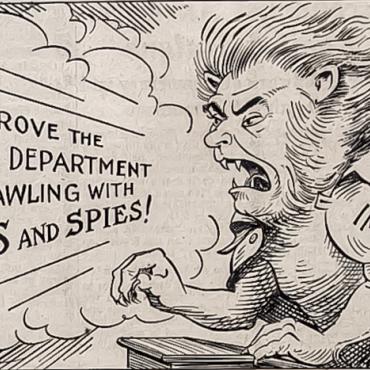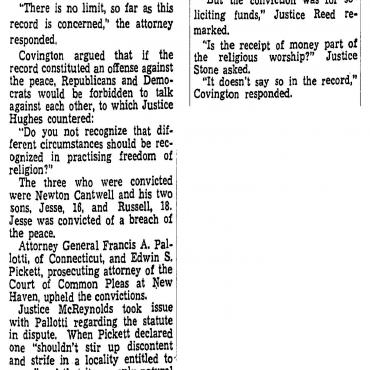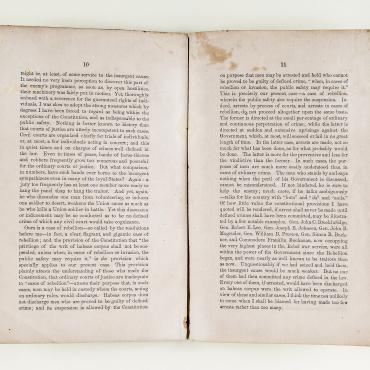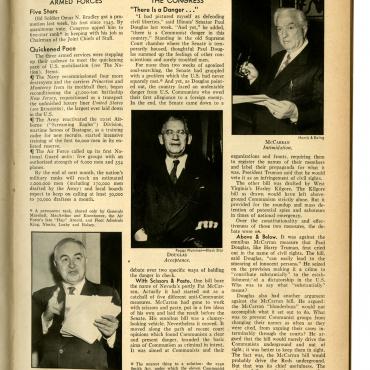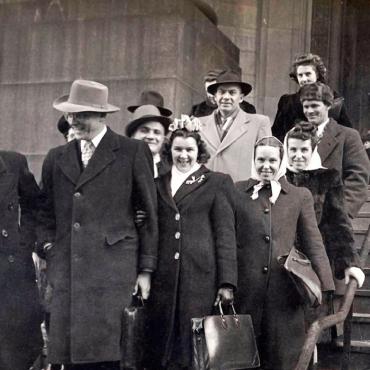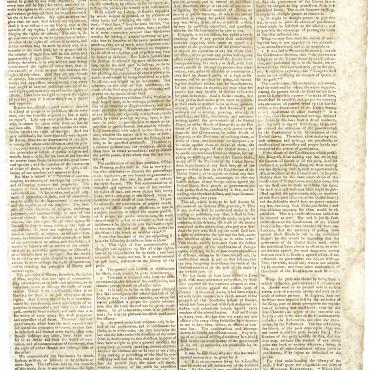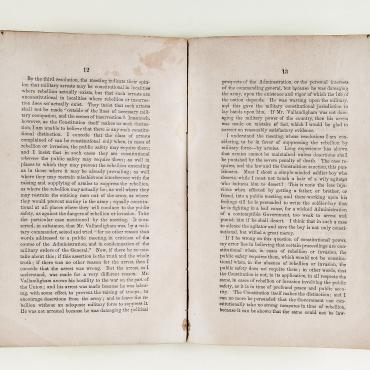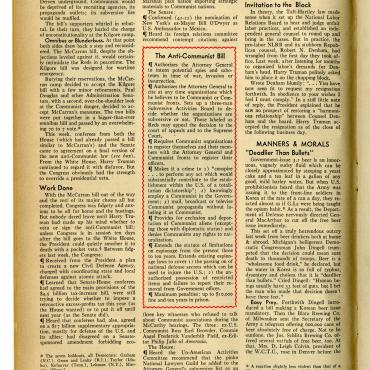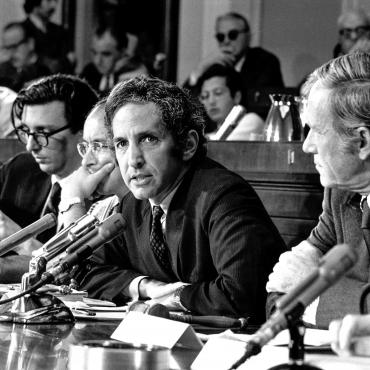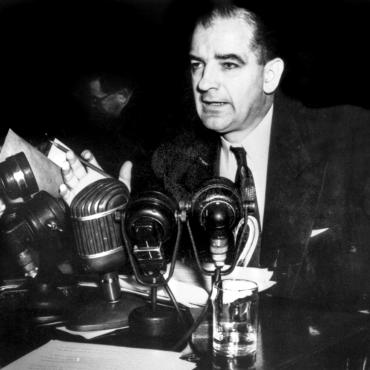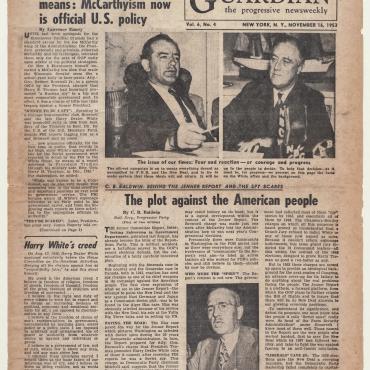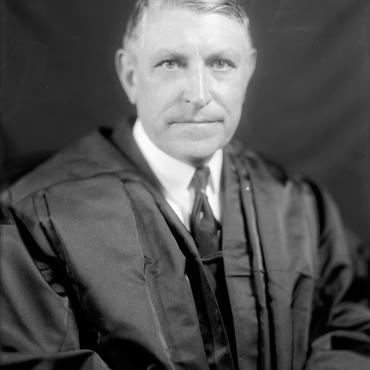1954: Communism Fears Challenge Freedom of Assembly
Should the government publicly scrutinize an individual's political speech and actions, if the person belongs to an organization that may have ties to foreign enemies?
Get even more great free content!
This content contains copyrighted material that requires a free NewseumED account.
Registration is fast, easy, and comes with 100% free access to our vast collection of videos, artifacts, interactive content, and more.
NewseumED is provided as a free educational resource and contains copyrighted material. Registration is required for full access. Signing up is simple and free.
With a free NewseumED account, you can:
- Watch timely and informative videos
- Access expertly crafted lesson plans
- Download an array of classroom resources
- and much more!
- Cold War
- Constitution
- National Security
- 9-12
- College/University
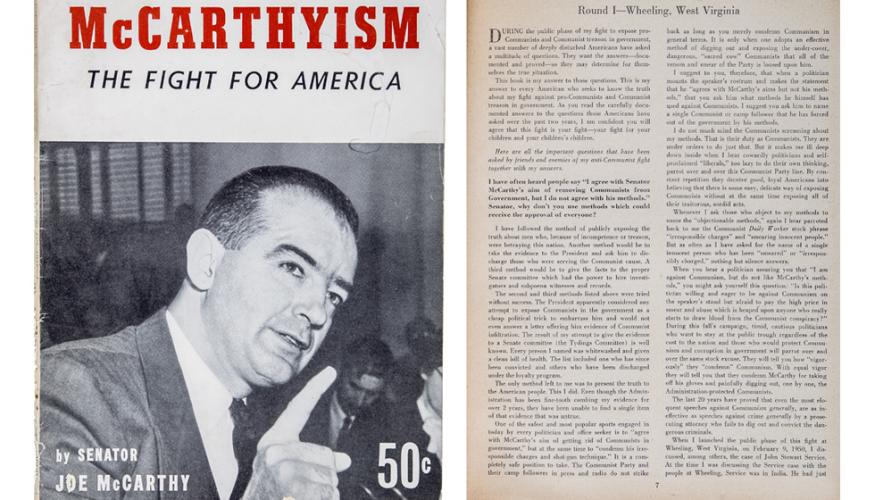
Sen. Joseph McCarthy tells readers the fight against communism is for the future of America — for their children, and their children's children.
- Pass out and read the Communism Fears case study scenario. Check for comprehension and ask students to identify the First Amendment freedom(s) at issue in this case.
- Break your class into small groups and assign each group one of the people/perspectives. Hand out copies of the Organizing Evidence and Present Your Position worksheets. Give groups 30 minutes to look at the primary sources online and answer the worksheet questions.
- Have each group present their position and arguments. Keep the gallery of case study resources on NewseumED.org open so students can refer to them as they explain their reasoning.
- Historical case study handout, one per student (download)
- Organizing Evidence and Present Your Position worksheets, one of each per group (download)
- Case study primary sources (below)
- NewseumED Communism and Free Speech Related Resources Pinterest Board (optional)
Should the government publicly scrutinize an individual's political speech and actions, if the person belongs to an organization that may have ties to foreign enemies?
The Cold War is on as the Soviet Union and the United States jockey for global dominance. The Soviet Union is taking control of countries in Eastern Europe and influencing countries close to the U.S., such as Cuba. Both nations speak of the other as the enemy and are building up their weapons supplies. By 1950, both nations have successfully detonated an atomic bomb, and fear of nuclear war sets in.
Because the Soviet Union is a communist state, members of the Communist Party of America fall under suspicion of disloyalty. Sen. Joseph McCarthy, R-Wis., gives a dramatic speech claiming he has the names of 205 members of the State Department who are communist sympathizers. He promises to work to weed these people out of the government.
As chairman of the Committee on Government Operations, an investigative subcommittee, McCarthy begins holding hearings to find and eliminate any government employee who supports communism. The individuals he targets face public scorn and ruined careers, regardless of the truth of the accusations.
Televised nightly, the hearings force a First Amendment debate.
Take the role of a historical figure below and find evidence to argue your case.
-
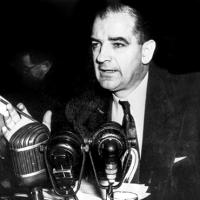 ?The press covered the rise and fall of the Wisconsin senator in detail. Pictured here is Sen. Joseph McCarthy at a news conference.National Archives and Records Administration
?The press covered the rise and fall of the Wisconsin senator in detail. Pictured here is Sen. Joseph McCarthy at a news conference.National Archives and Records AdministrationSen. Joseph McCarthy, R-Wis.
The Communist Party is controlled by our greatest enemy and is a serious threat to the United States. Joining the Communist Party should be seen as an act of treason, and those traitors should be exposed and punished.
"As one of our outstanding historical figures once said, ‘When a great democracy is destroyed, it will not be from enemies from without, but rather because of enemies from within.’ The reason why we find ourselves in a position of impotency is not because our only powerful potential enemy has sent men to invade our shores … but rather because of the traitorous actions of those who have been treated so well by this nation."
-
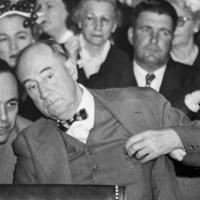 ?Joseph Welch, wearing bowtie, is shown here at the McCarthy hearings in the spring of 1954.Library of Congress, Prints & Photographs Division
?Joseph Welch, wearing bowtie, is shown here at the McCarthy hearings in the spring of 1954.Library of Congress, Prints & Photographs DivisionJoseph Welch, chief counsel for the United States Army
The Communist Party is no friend to the United States, but individuals’ past involvement with the party or its affiliated organizations should not be used to smear them in public, potentially ruining their careers and their lives.
"Little did I dream you could be so reckless and so cruel as to do an injury to that lad [attorney Fred Fisher]. It is, I regret to say, equally true that I fear he shall always bear a scar needlessly inflicted by you. If it were in my power to forgive you for your reckless cruelty, I would do so. I like to think I'm a gentle man, but your forgiveness will have to come from someone other than me. … You've done enough. Have you no sense of decency, sir, at long last? Have you left no sense of decency?"
-
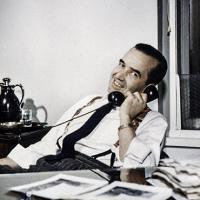 ?Edward R. Murrow, captured here in a casual pose at his desk, was an American broadcast journalist admired for his honesty and integrity in delivering the news.Newseum Collection
?Edward R. Murrow, captured here in a casual pose at his desk, was an American broadcast journalist admired for his honesty and integrity in delivering the news.Newseum CollectionEdward R. Murrow, host of the CBS news program “See It Now”
The United States will not win the battle against communism by labeling anyone who opposes McCarthy or the Republican Party as a communist and a traitor. Instead, we should be focusing on promoting the ideas on which our democracy is founded, including open debate.
"I believed 20 years ago and I believe today that mature Americans can engage in conversation and controversy, the clash of ideas, with communists anywhere in the world without becoming contaminated or converted. I believe that our faith, our conviction, our determination are stronger than theirs, and that we can compete and successfully, not only in the area of bombs but in the area of ideas."
-
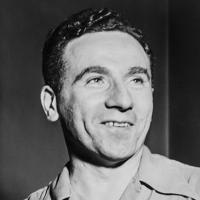 ?John Gates broke from the Communist Party in 1958 while he served a five-year prison sentence. He strongly denied the charge of undermining the government.Library of Congress, Prints & Photographs Division
?John Gates broke from the Communist Party in 1958 while he served a five-year prison sentence. He strongly denied the charge of undermining the government.Library of Congress, Prints & Photographs DivisionJohn Gates, chief editor of "The Daily Worker," the official newspaper of the Communist Party of America
The Communist Party of America is not simply an extension of the Soviet government into the United States, but rather an organization that works to address some of the most pressing problems in American society, such as poverty and racial injustice. Membership in the party should be seen as a commitment to addressing those causes and not as a betrayal of the United States.
"When I joined [the Communist Party] in 1931, as you said before that was in the midst of the depression, the biggest one this country ever had, nobody had any answers for what to do. The country was in a panic. The only people that seemed to me to have any kind of a solution were the communists, and not only did they have a solution but they did things, and I joined because of that."
- Would concerns for public safety ever justify limiting freedom of assembly? If so, what conditions need to be in place? If not, why not?
- Would public scrutiny discourage people from joining an organization?
- How is public scrutiny the same/different from explicitly banning an organization?
- Would the congressional hearings be acceptable if they were held privately?
-
Common Core State Standards: CCSS.ELA-LITERACY.CCRA.SL.1
Prepare for and participate effectively in a range of conversations and collaborations with diverse partners, building on others' ideas and expressing their own clearly and persuasively.
-
NCSS C3 Framework: D4.1.6-8 and D4.1.9-12
6 - 8: Construct arguments using claims and evidence from multiple sources, while acknowledging the strengths and limitations of the arguments. 9 - 12: Construct arguments using precise and knowledgeable claims, with evidence from multiple sources, while acknowledging counterclaims and evidentiary weaknesses.
-
National Center for History in the Schools: NCHS.US History.Era 9
Standard 1: The economic boom and social transformation of postwar United States Standard 2: How the Cold War and conflicts in Korea and Vietnam influenced domestic and international politics Standard 3: Domestic policies after World War II Standard 4: The struggle for racial and gender equality and for the extension of civil liberties
-
Center for Civic Education: CCE.II
A. What is the American idea of constitutional government? B. What are the distinctive characteristics of American society? C. What is American political culture? D. What values and principles are basic to American constitutional democracy?
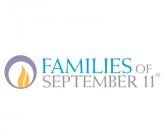
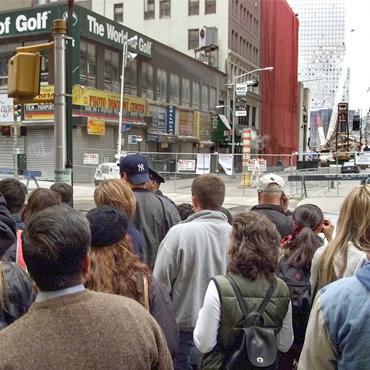
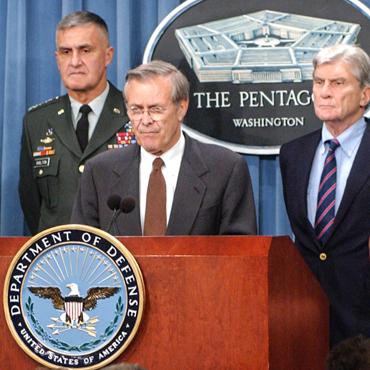
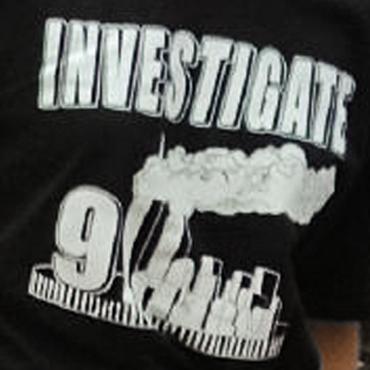
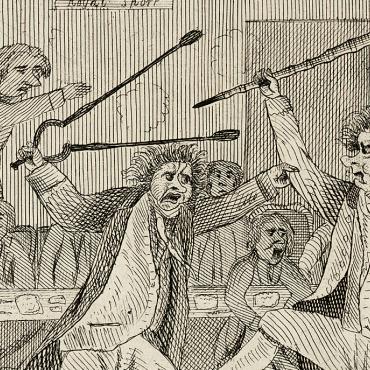
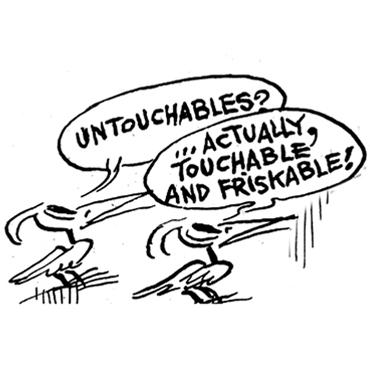
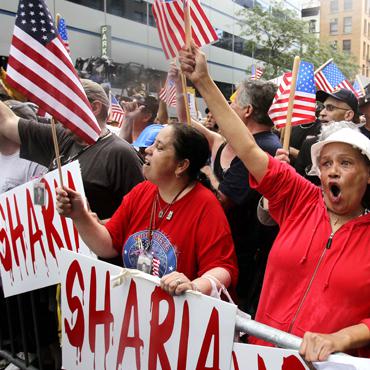
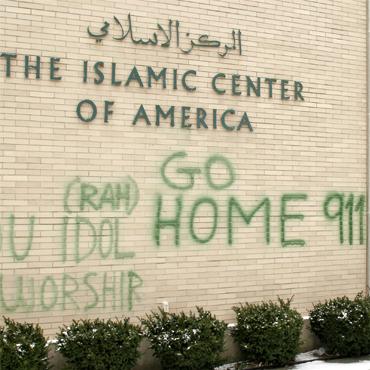
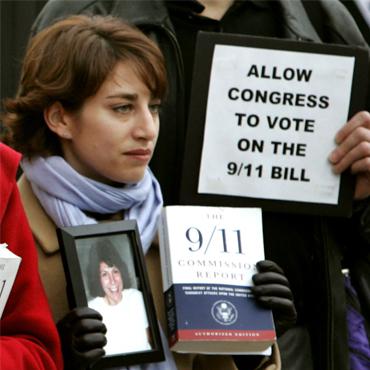
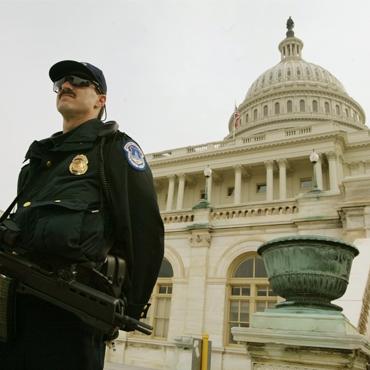
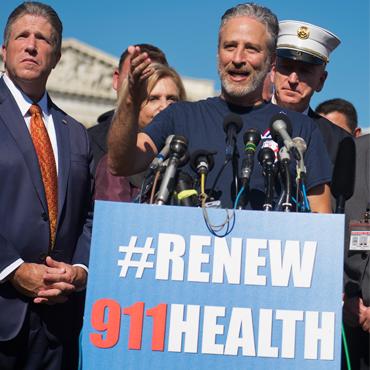
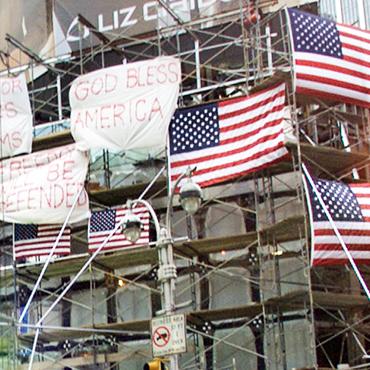

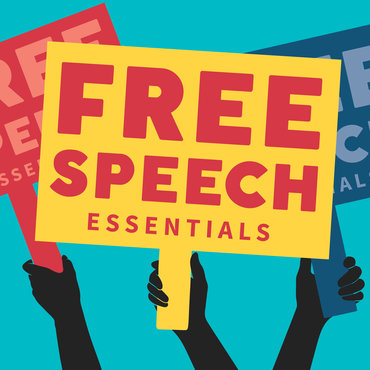
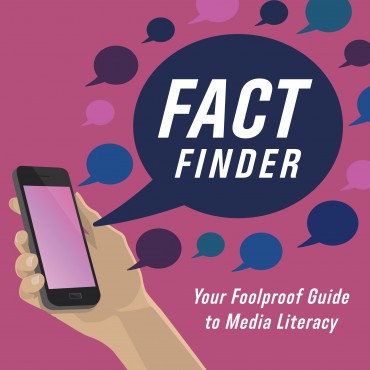

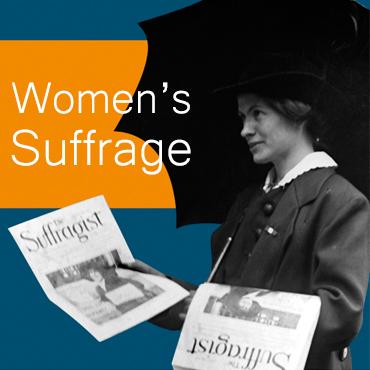
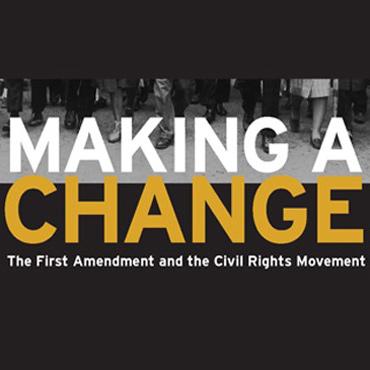
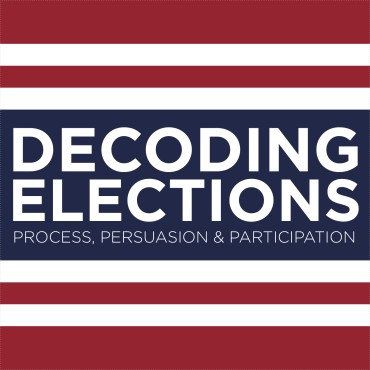
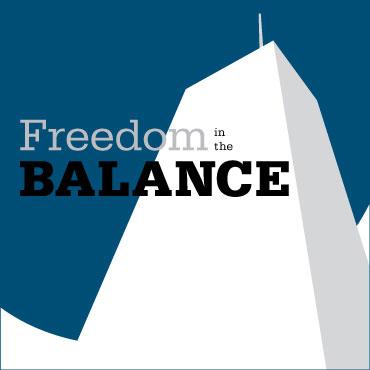
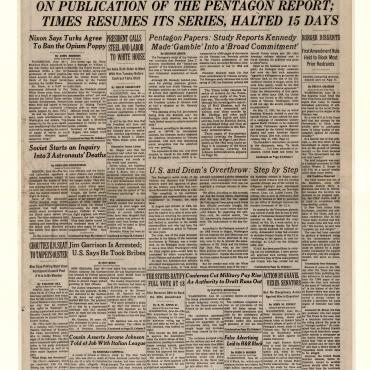
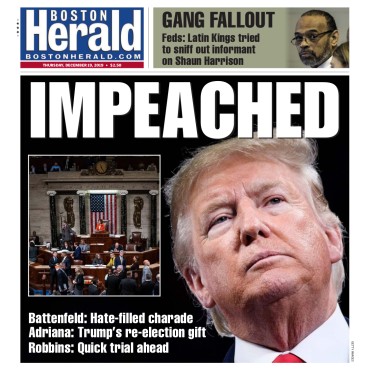
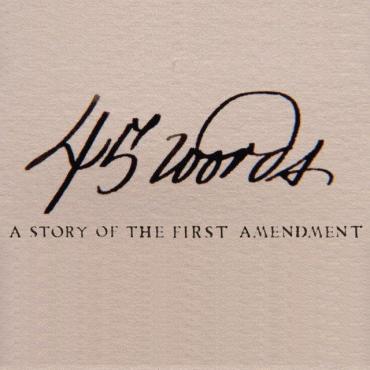
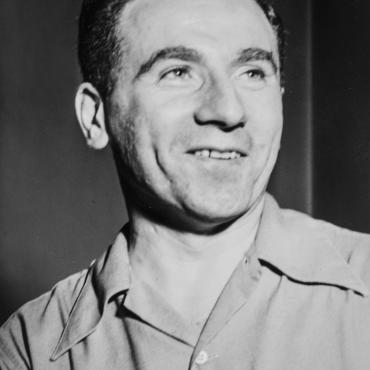
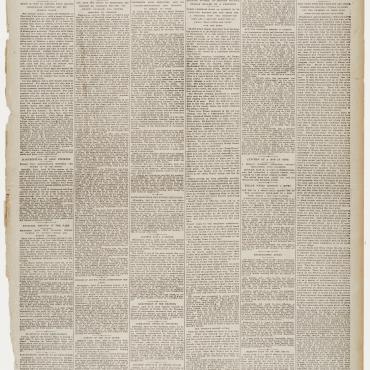
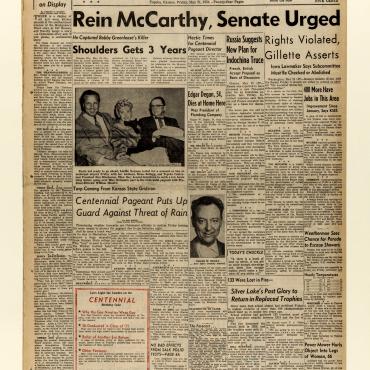
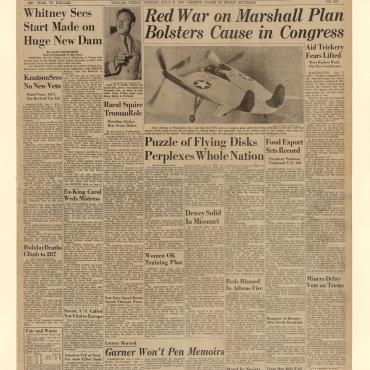
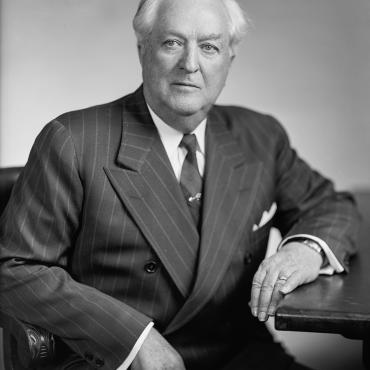
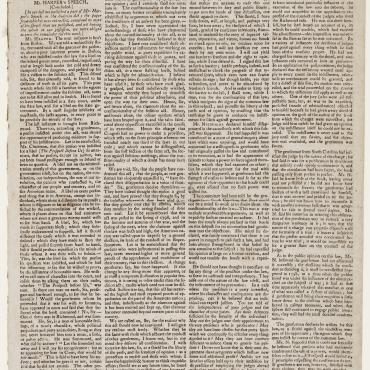
!['White House Slaps at Joe [McCarthy]'](/sites/default/files/styles/370x370/public/legacy/2016/02/5-HN-1954-001700-FINAL.jpg?itok=VpYOJeTc)
